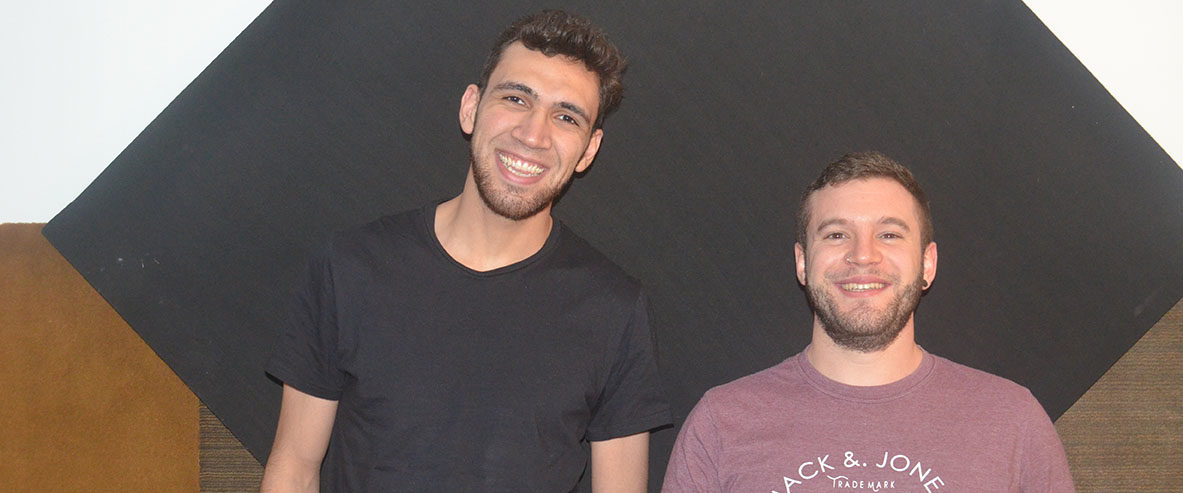Chemical engineering students participated in an exchange program in France
Mauro Abulafia and German Pinzón returned to the country to finish their studies after a 6-month exchange program within the framework of the ARFITEC scholarships.

Mauro Abulafia and Germán Pinzón, students in the senior years of the UTN Buenos Aires Chemical engineering degree program, returned to our country at the beginning of 2019, after a 6-month exchange program in France within the framework of the 2018 ARFITEC scholarships.
Germán Pinzón was assigned to the SIGMA Clermont Engineering School, located in the city of Clermont, while Mauro Abulafia, joined the Higher National School of Chemistry of Lille, in northern France.
“Since I started my studies at the School, I have looked for this type of activities. I’ve always wanted to travel to France to study, but at the beginning there was nothing for the Chemical Engineering degree program. One day, I saw the scholarships announcement on the sixth floor of the Medrano premises so I went to the Department and I enrolled,” explained Pinzón.
The case of Abulafia was different. “Although I was interested in travelling, it wasn´t something I was looking for. One day Susana Santana, Director of the Chemical degree program, explained what the scholarships consisted of and she urged us to participate. So I enrolled, without much expectation. But I was lucky.”
Abulafia returned the first days of January while Pinzón returned in mid-February. Both agreed on the fact that the most difficult challenges were related to the adaptation to the language, the differences in the study methodologies and the experience of living abroad by themselves.
“The most difficult thing was to speak. At the beginning, I understood but I didn’t have enough courage to speak in French. Luckily, I had excellent classmates who helped me a lot,” Abulafia said.
“Besides, he added, lessons started at 8 am and ended at 6 pm so I returned home very tired. But the positive thing is that this shortened the duration of the courses and we would often do course rotations, which made it less boring”.
In turn, Pinzón emphasized that the academic setting was prepared for receiving foreigners in an excellent way so integration was not difficult, and that “apart from the people I met and that I improved my French, the journey showed me that it is not impossible to live in another country, something I had not imagined before.”
On their return, they did not have to hand in any work but they had to complete the procedure to validate the courses taken in France, which were computed as credit hours of elective courses. This year, they both started to work on their Final Projects.
“We wanted to thank engineers Susana Santana and Agustina Zangrando in particular, and the School for all they did so that we could travel, because we know it was a huge effort,” they agreed.



